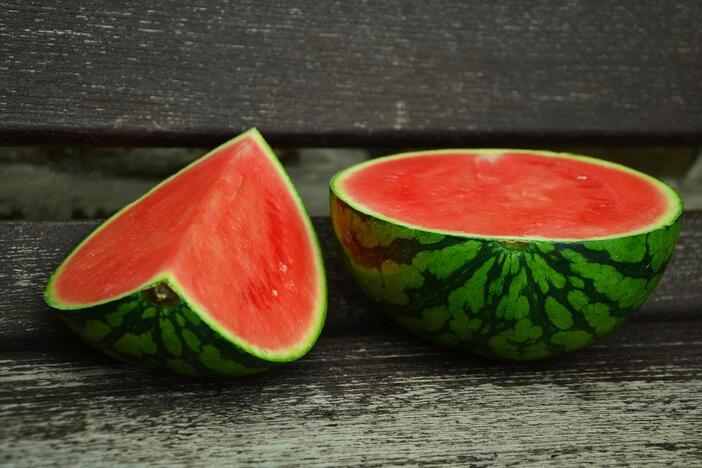
Section Branding
Header Content
A Fork in the Road Podcast: Yaupon Teahouse + Apothecary
Primary Content
Embark on an enchanting journey where ancient traditions meet modern wellness and explore the fascinating world of Yaupon Holly, a forgotten American medicinal plant. Join tea farmer Lou Thomann as he shares the captivating history and versatile uses of Yaupon, from brewing herbal teas to crafting skincare products. Discover the sustainable practices at Yaupon Wellness Company's research farm and learn how this indigenous plant is making a comeback in the world of health and lifestyle. Uncover the wisdom of Native American tribes and indulge in the magic of Yaupon, where every leaf tells a story.

Lou Thomann: But as a tea it was used as a tea for the caffeine, of course, but also as a communal gathering drink to foster good friendships and good relations among amongst the community of Native Americans.
David Zelski: Tea. When America was first getting off the ground, we had a big fight with Britain over it. Nowadays, it's still a tremendous part of our daily lives. At Yaupon Teahouse + Apothecary, they brew it with the help of some ancient American traditions.
Theme Song: I came from the mud, there's dirt on my hands. Strong like a tree, there's roots where I stand.
David Zelski: I'm David Zelski, and this is the Fork in the Road podcast presented by Georgia Grown and the fine folks at Georgia Public Broadcasting. Each episode, we feature stories from Georgia's farmers, fishermen, merchants, artisans, chefs and others who help provide Georgia-grown products to folks in the Peach State and beyond. Today, we're headed to historic downtown Savannah to visit the Yaupon Teahouse + Apothecary. It's the flagship storefront location of Yaupon Wellness Company. Founded by tea farmer Lou Thomann, Yaupon Teahouse offers a wide variety of teas and wellness products made with leaves from the Yaupon Holly tree.
Lou Thomann: This store is unique and one-of-a-kind, because everything in this store has some tie in to the Yaupon Holly plant, The plant that we are very passionate about. And all the products in the store, have a tie in either historically or chemically or, you know, just there's a tie in somehow to the plant.
David Zelski: Lou was first introduced to the plant that would become the focus of his life and career, while exploring a small island just off the Savannah coast.
Lou Thomann: My family and I, about 11 years ago had a nature walk on Ossabaw Island, which is a barrier island off of Savannah, and it's an incredible maritime forest, about 20,000 acres of just beauty. And we were accompanied by a naturalist by the name of John "Crawfish" Crawford, who's a local legend around the waters of Savannah. And he introduced me to the Yaupon tree. And, um, I just fell in love with the tree. And it spoke to me. And I knew at that moment that I was on a different journey.
David Zelski: The Yaupon Holly tree's leaves were frequently used by Native Americans to calm nerves, purify water, suppress appetite, induce dreams, heal wounds, and regulate menstrual cycles, just to name a few uses. On their island walk, John Crawford told Lou and his family all about it.
Lou Thomann: He told us about the Native American medicinal use of the plant, also its use as a native tea. As a young kid, I did a lot of reading on Native American tribes and history, and it was just a fascinating topic for me, but it sort of went dormant. You know, you grow up, you go to school, you go to college, you play sports. Whatever you do, it just kind of laid dormant. And it welled back up in me when we were talking about this tree. And that's why I kind of knew that things were going to change. And they did.
David Zelski: And at that moment, Lou embarked on a mission to educate people on America's forgotten medicinal plant and make it more widely available for health-minded consumers. I visited Youpon Wellness Company's research farm in Metter, Ga., where Lou first transplanted the Yaupon tree to mainland.
Lou Thomann: So here's a Yaupon right here.
David Zelski: What makes it look healthy? What are you looking for?
Lou Thomann: It's green. It's has new growth. Even though it's kind of late in the season, it's going to be dormant soon in the winter. But this is new growth right here and that has all the good stuff in it. It's kind of like all the power, the caffeine and the antioxidants are all right there. I mean, all the leaves have it —
David Zelski: Is it the leaf and the stem?
Lou Thomann: The stem, the pliable stems have a lot of caffeine, a lot of nutrients in it. So that's — that's pretty — this is all new growth. You can see the new growth because it's pliable.
David Zelski: What is it about this land that that works for Yaupon and these other plants you're growing?
Lou Thomann: Well, you know, Yaupon's a native species, so it likes this region. We're in the region where it grows naturally. What I did here is I propagated wild Yaupon from a maritime forest down in Darien, Ga., on — on Hird Island. And I transplanted them here. And it loves the soil, loves the climate. What it likes, well, what makes it interesting as a row crop — which is part of our mission, also: to try to figure out how to best grow it as a row crop, kind of a new industry — is it's drought resistant. The deer really don't like it: It's the last thing they're going to eat. And it's cold-resistant. It just — and it keeps on growing, it's an evergreen. You know, you just cut it back and it grows back. So it's a interesting endeavor as a row crop.
David Zelski: Part of the research they do at Yaupon Research Farm is figuring out how to make the plant more resistant to the elements. Can it handle extreme weather? I run into so many crops, they're like, "oh, we had a freeze in March, so the whole crop is gone."
Lou Thomann: Yeah, we're actually working. That's part of our plan, is to propagate some that are cold tolerant. So we do go up to the Carolinas, Virginia. I actually found a Yaupon in Massachusetts. So — it's kind of near the coast. So it's a little bit moderate. But we're going to try to use that to propagate as a cold tolerant plant, Yaupon. So — so because a lot of farmers want to grow it, our mission is to help farmers understand it, that want to grow it and give them products, either liners or Yaupon plants to plant.
David Zelski: Nice.
Lou Thomann: What makes you open different is it was it we considered it the forgotten American medicinal plant in North America. It's different because it contained — contains caffeine and theobromine. So it's the only native plant in North America that has enough caffeine to to use it. So the caffeine stimulant was really important. Theobromine, sort of that, elixir of the gods also is in Yaupon, so it made it unique in that respect. And it wasn't just a tea. It was also used by the native tribes in the Southeast as medicine men smoked it. It was a wound care. It had all kinds of different uses. We're still trying to figure those out because a lot of history has been lost.
David Zelski: Native American tribes didn't just benefit from the Yaupon tree's medicinal properties. They used it to help strengthen their community.
Lou Thomann: It was traded widely among other tribes from different parts of the country where it wasn't native. It was considered — it was called big medicine. It was called the beloved tree. And there's all kinds of legends, beautiful legends about it. And it was, just very, very important. It was sacred. It was a sacred plant. So there are a lot of great medicinal botanicals and herbs in North America. But this one I've never to this day found one that had so many accolades, so many stories and so many names. So it was important. For that reason, I'm passionate about it. I want to know more about it. And I'm always on — in search of finding out more about the plant.
David Zelski: The science behind Yaupon tree leaves contributes to its special function as a powerful medicine.
Lou Thomann: It's very complex. Its chemistry is very complex. So, we consider it an adaptogen in many ways because it has so many constituents that have different medicinal value. The caffeine pathway all by itself is a beautiful thing. It's full of saponins or saponins. If you look at the function wheel of Yaupon, it's an anti-diabetic, anti-carcinogen, anti-inflammatory. It's just a brain neuro protector. So it has all these great functions that we're trying to better understand through our government grants, our research grants.
David Zelski: Lou's Farm conducts pioneering research on the Yaupon tree in partnership with local universities, and has received a small business innovation grant to continue that work.
Lou Thomann: Our mission is really sort of ancient wisdom with modern science, trying to combine those two things to come up with holistic products that modern-day, healthy lifestyle consumers want or need. So it's understanding that ancient use of the plant, understanding its chemistry, and with those two fundamental pillars come up with modern day products.
David Zelski: Tea is great, but if you're like most Americans, you know there's another hot beverage that's become a necessary staple of your mornings. As Lou tells me, tea from the Yaupon can provide a healthier alternative to the Venti Caramel Pumpkin Spice Latte double shot with sugar-free oat milk, whipped cream and chocolate flakes — or whatever your order is. Do you still do coffee in the morning, espresso in the morning and tea in the afternoon?
Lou Thomann: Yeah, I do, I do like coffee. I mean, the interesting thing about Yaupon is chemically it is a tea and a coffee. It has a lot of the chlorogenic acids that make coffee good for you, but it has a lot of the chemistry that green tea has. So it's a very unique plant in that respect. And if you roast it dark enough, thick enough and strong enough, it could be a coffee replacement. But chemically, some of the scientists and chemists that we're talking to are — really remark that, "wow, this really is a coffee and a tea from the chemistry point of view." Flavor? It's different, but we can make it really strong. So if you like strong coffee, we can make you a strong Yaupon tea.
David Zelski: Back at Yaupon Teahouse, Lou told me more about the chemical compound in Yaupon, which gives you that energy boost.
Lou Thomann: Theobromine is an alkaloid in the caffeine pathway. It makes some people call it the feel-good alkaloid. It gives you a good mood. And it sort of is a metabolite from the caffeine pathway that actually, it, uh — trying to remember exactly what it does — it stimulates the soft touch in muscle, soft muscle tissue in your body. It's not as much of a stimulant as the caffeine itself. It doesn't cross the brain blood barrier. But it's a wonderful and very desired, constituent these days.
David Zelski: All right. I've heard enough time to finally try some of this miracle plant for myself.
Lou Thomann: So let me see what you think.
David Zelski: It looks like coffee.
David Zelski: And the smells in here are amazing. Absolutely. That's from the incense
David Zelski: I feel like I'm drinking out of the Holy grail. This thing's beautiful.
Lou Thomann: Chipped up a little bit. All right.
David Zelski: Wake me up in the morning. So it's literally coffee.
Lou Thomann: Yeah. So during the early colonial times, it was compared favorably with Camellia Sinensis tea from Asia. So you can brew it many ways. You can replicate the Asian Camellia sinensis tea flavor very well, but we like it in its original form.
David Zelski: I love this, it is smooth enough, but it has enough kick and has a okay amount of caffeine.
Lou Thomann: Yeah, yeah, yeah, that's a winter harvest. So typically caffeine varies depending on the time of year. So there's very little in that. If you don't want caffeine I have the Yaupon for you, if you want some caffeine I have that too. That would be very, very mild.
David Zelski: It's been fun learning this from you because it has everything you need, especially if you're female, because you talked about it can help them out. But it's brain food. It's just general health food. At Yaupon Tea House, they market Japan products to health-minded consumers while respecting the ancient American traditions of which the plant is part.
Lou Thomann: If you go to the Cahokia Mound settlement in southern Illinois, which was one of the largest Native American towns in North America, they found — the anthropologists found — cacao and Yaupon residue in earthenware like this. So they know that the tribes were trading it. The Native American tribes from the North America were trading it to the Mayans in Mexico for cacao. Two sacred plants, both containing theobromine. So their alchemy was right on. They knew what they were doing. So what we've done to pay homage to that history and that wisdom. We actually hired, we didn't hire. We commissioned Mayan artisans from Chiapas, Mexico, to replicate that earthenware from Cahokia Mound in Illinois.
David Zelski: Yaupon Teahouse even offers chocolate made with Yaupon. And that's for those who have a hankering for ancient wisdom and also a bit of a sweet tooth.
Lou Thomann: We have an offering of cacao and Yaupon chocolates. Again, it's kind of a ancient wisdom, modern version of a product that they would have consumed it because they were blending it more as a drink, but because they both contain theobromine and cacao is a wonderful chocolate-type product, and Yaupon goes well with it. We actually feature products again paying homage to that. So reflecting our, in our, our sort of mission is to understand the ancient uses of Yaupon, combine it with the understanding and chemistry that we're doing now, and come up with products that are healthy, good, and pay homage to that sort of ancient tradition.
David Zelski: Now, ingesting Yaupon isn't the only method for getting it in your system. Smoking it can also help you kick that nicotine habit. Do you inhale it?
Lou Thomann: We do. I don't inhale a lot of it, but. But yes, mildly. You know, we do. We also have a blend with lobelia inflata and Yaupon. Lobelia is an interesting herb. Lobelia was used back in the day to get people off of cigarettes and nicotine, because it gave you a nicotine-like effect without nicotine. It's also — a good herbalist will tell you, it draws up toxins and out. So we blend it with the open for herbal smoke. I don't recommend, you know, smoking it like cigarettes. It's more of an intentional smoke. I let a little draw in. It's the smoke. It's kind of like the whole atmosphere of the of the ceremony. We also have the Yaupon incense, being a sacred plant, we thought that would make a great modern-day product. And people love it. We sell a lot of these.
David Zelski: I can smell it right now.
Lou Thomann: Yeah, we're burning it. That's right.
David Zelski: Yeah, yeah.
David Zelski: I'm feeling relaxed already. And if that wasn't enough uses for this magical plant, you can also put it on your skin.
Lou Thomann: This section over here is our skin beauty, clean beauty section. To give you another idea of understanding traditional use and come and making modern-day products, Yaupon was used for skin care, for wound care. It's — it's an antibacterial. And it's also full of those saponins that I mentioned, which are great for skin, it's great for the interior, internal part of the body, but it's also really good for your skin. So we have a daily facial oil. We mix it with all-organic, beautiful ingredients. And this is our biggest seller. Vogue magazine did a piece on this particular product. And that's our biggest seller. We also have rose toner. We use the distillate from our Yaupon to make this rose toner — again, blended with other beautiful botanicals. And it's all: I'm gonna spray it so you can just kind of walk into it, just kind of smell it, lean into it if you can.
David Zelski: Oh yeah.
Lou Thomann: Yeah. So we also have Yaupon blemish bars and sweet tea soap made with Yaupon. So because of that saponin content in, in, Yaupon, saponin — in root word "sapon" which means "soap" in Latin — it froths and foams up along with all the beautiful chemistry within those that complex of compounds. It makes for a great soap. Kids with blemishes. A lot of them really, really swear by it.
David Zelski: Bath time just got a whole lot more ancient wisdom. Learning about the Yaupon Holly tree and its many uses really made me appreciate the ingenuity of America's original people. I'm glad I got to spend some time with Lou at Yaupon Teahouse and the Yaupon Research Farm to hear all about it.
For more stories like this one, you can watch A Fork in the Road on GPB-TV or any time on the GPB.org website. GPB.org/Podcasts is where you can listen to and subscribe to this p odcast or download it on your favorite podcast platform.
I'm David Zelski. Thanks for listening to A Fork in the Road.
A Fork in the Road airs Saturdays at noon and Sundays at 6:30 a.m. on GPB-TV. Check your local listings for other replays throughout the week and watch all episodes anytime at GPB.org/ForkintheRoad. Please download and subscribe to the Fork in the Road podcast at GPB.org/ForkintheRoadpodcast or on your favorite podcast platform as well.

Embark on an enchanting journey where ancient traditions meet modern wellness and explore the fascinating world of Yaupon Holly, a forgotten American medicinal plant. Join tea farmer Lou Thomann as he shares the captivating history and versatile uses of Yaupon, from brewing herbal teas to crafting skincare products. Discover the sustainable practices at Yaupon Wellness Company's research farm and learn how this indigenous plant is making a comeback in the world of health and lifestyle. Uncover the wisdom of Native American tribes and indulge in the magic of Yaupon, where every leaf tells a story.





